Main Menu
- EnvironmentHealth
Main Menu
- EnvironmentHealth
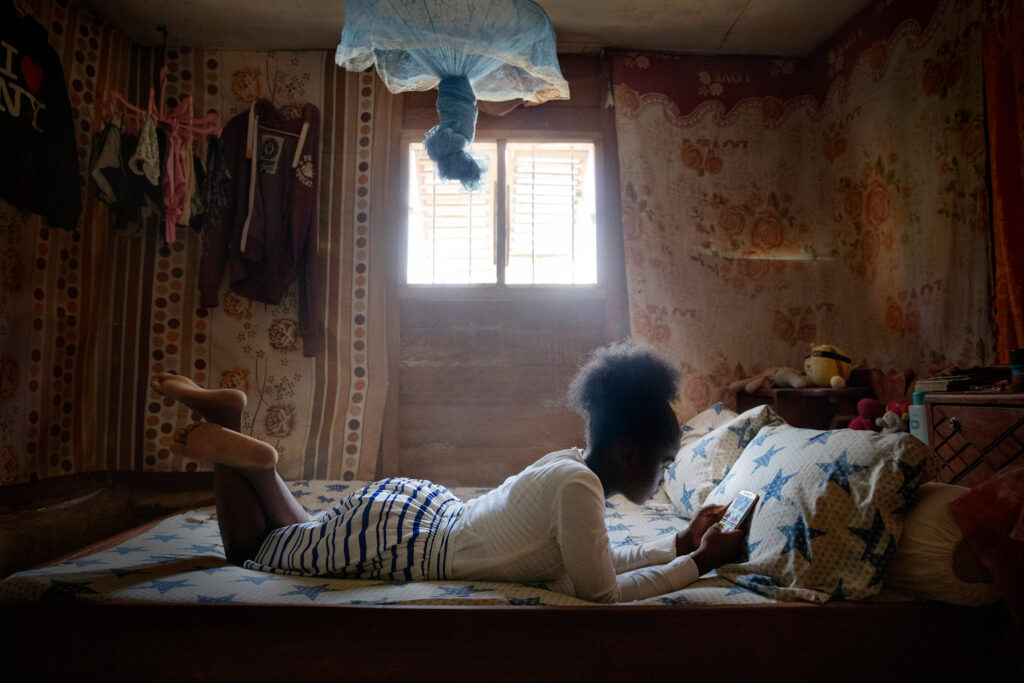
Casilda Esono Mbang, 16 years old, is from Añisok, a small town in the west of Equatorial Guinea, bordering Gabon. She is a former student of the Vedruna school, a center run by the Carmelite Sisters of Charity Vedruna, which detected the importance of bringing digital technology to its students and is developing a project of education through technology with the use of digital tablets. Casilda is now studying Electricity and Hotel Management in Bata, the country’s most important city after its capital, Malabo. She uses her smartphone mainly to communicate with her family.
“Inhabit”: Live in or occupy a place or environment.
The Inhabitants is a simultaneous vital journey of them in different parts of the world. They face the double challenge of being girls and women, in countries where women’s rights are too often questioned.
The images walk through the map, personal and universal, that each one of them traces towards adulthood: moments of introspection, education, play, belonging to the community, illusions…
A photographic project that covers 10 years of work photographing them in underdeveloped contexts in three continents, documenting their daily struggle to inhabit their place in society under the umbrella of projects of different NGOs that promote the rights of girls.
*Thanks to the NGOs that have made this project possible: UNICEF, Salesian Missions, Agua de Coco, Africa Directo, AIPC Pandora, CIDSE, REPAM, In Movement, Hnas Carmelitas Vedruna, Hnas de la Caridad de Santa Ana, Mensajeros de la Paz, Beyond Suncare, Sara Cannizaro Center, Trampled Rose and Anesvad.
**The project is supported by: B The Travel Brand Xperience and journalist Paco Nadal.
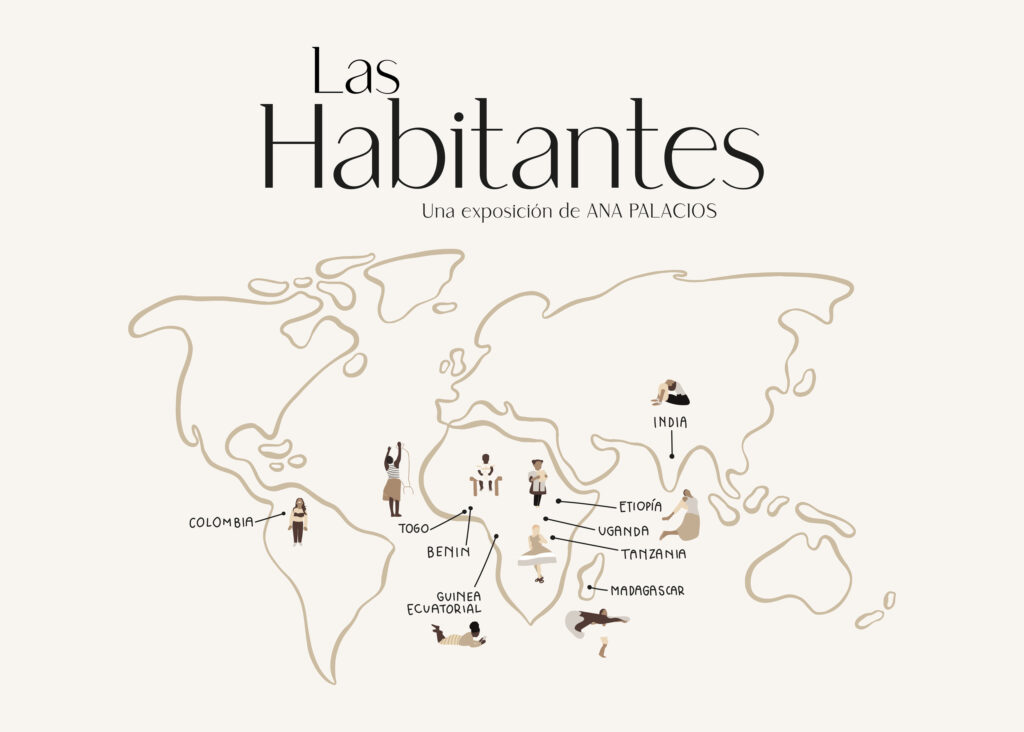
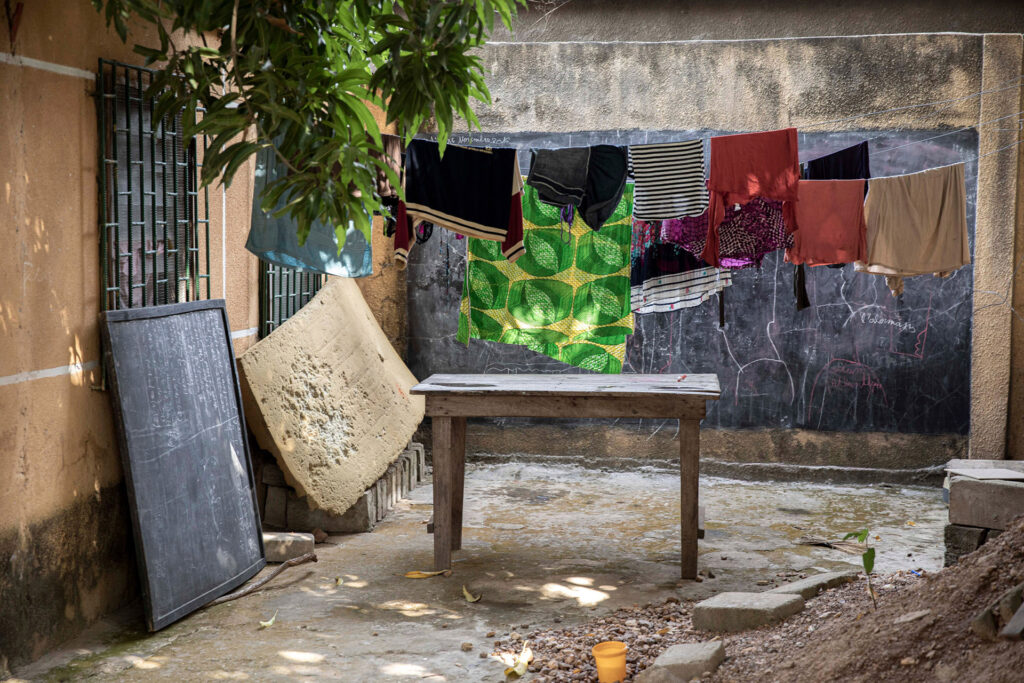
Courtyard of the Jean Paul II center, Kara (Togo) managed by Salesian Missions where the girls living in this shelter for victims of abuse do their homework after school, hang their clothes and where some of the center’s belongings are also stored.
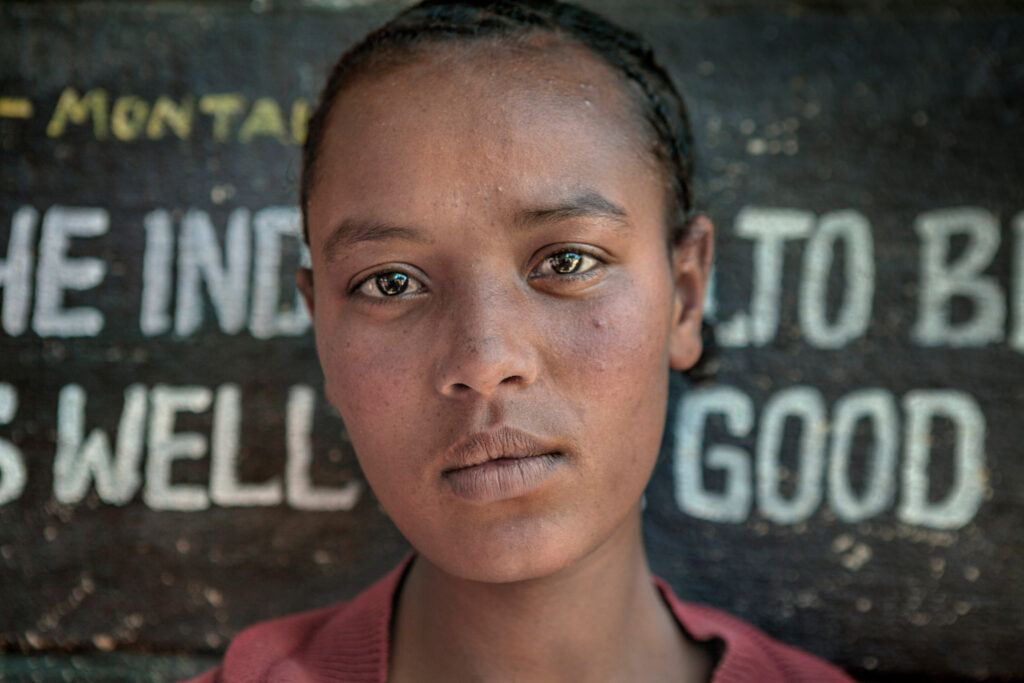
She is Almaz, studying at Sheno High School (Ethiopia) and says she doesn’t understand the question when I tell her what her dream is. Her only goal is to study to go to university and become a doctor. She feels she is already blessed just to be able to go to school, she does not conceive of any other dream. She is one of more than 7,000 Ethiopian girls that the NGO Trampled Rose has educated over the past fifteen years.
“[…] The child shall have the right to enjoy adequate food, shelter, recreation, and medical services.”
Principle 4 of the Declaration of the Rights of the Child.
Adequate and sufficient rest is a basic necessity for a healthy life. It is essential to enjoy time in which no productive activities or personal obligations are carried out.
Moments of quiet, rest, and intimacy with oneself are indispensable for the physical and psychological development of girls since they favor their learning, the definition of their identity, and the construction of autonomous life.
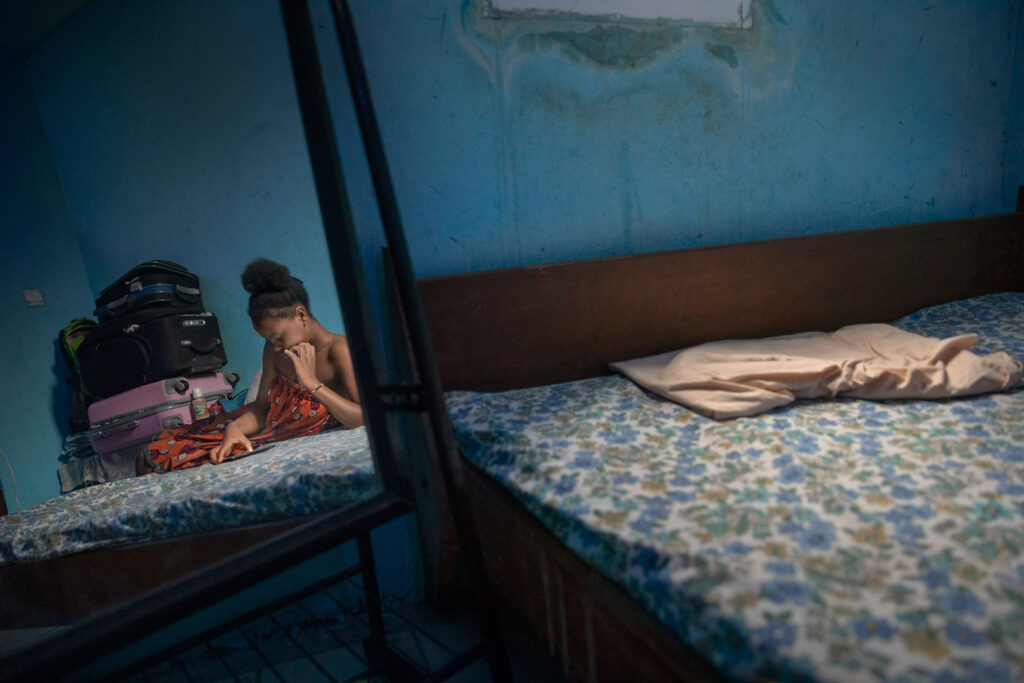
Maria Yolanda Ayang, 16, is from Añisok (Equatorial Guinea) and a student at the Vedruna school, whose students study part of their syllabus using tablets to bring technology closer to these young people and close the digital inequality gap with the West. She belongs to one of the few families that owns a smartphone in her village. He uses it to access Facebook Messenger to communicate with his friends and Youtube to watch music videos.
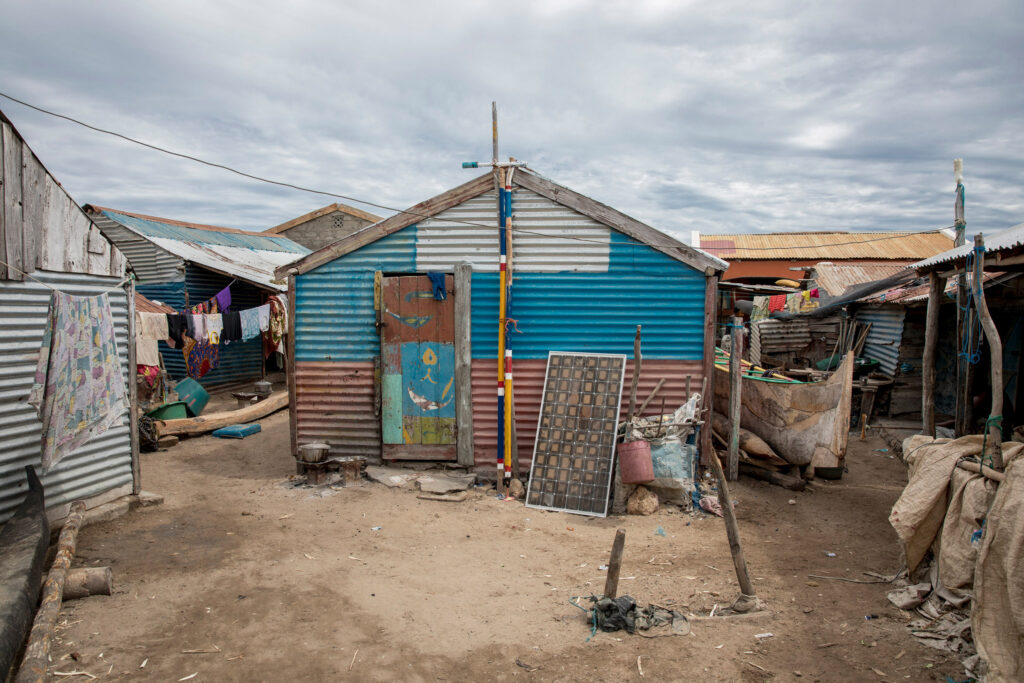
The Salines district in Tulear (South Madagascar) is an underpriviledged neighbourhood. It has no electrical infrastructures, only a few solar pannels used for electronic devices mostly, as cooking is still done with coal and wood.
An area by the sea where most of the population work in the salt salines and fishing. But the nearby school teaches computer classes as part of the curricula.
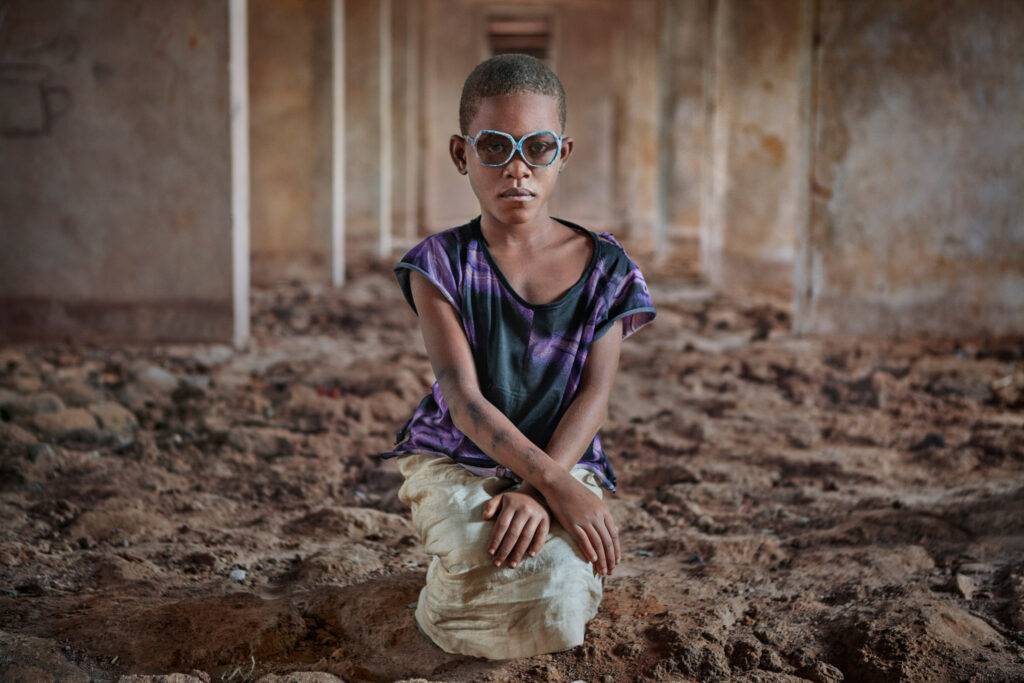
She is Hadija Bishusha. She is an albino even though she doesn’t look like one. At least that’s how she is classified in the registry of Kabanga Center, a center for people with albinos and other disabilities in Tanzania.
“The child has the right to receive education, which shall be free and compulsory at least in the elementary stages […]”.
Principle 7 of the Declaration of the Rights of the Child.
Two-thirds of the 774 million illiterate people in the world are women. The vulnerability of girls is reflected in gender stereotypes in patriarchal societies, which, in certain minorities or ethnic groups, prioritize the education of boys over girls in the family.
In recent years, the schooling of girls has increased, but their dropout rate from the educational system is very high to prepare to become housewives and marry early. However, it has been proven that women with a higher level of education enjoy better health, participate more in the labor market, and have more income, which has an impact on the prosperity of the family and the community.
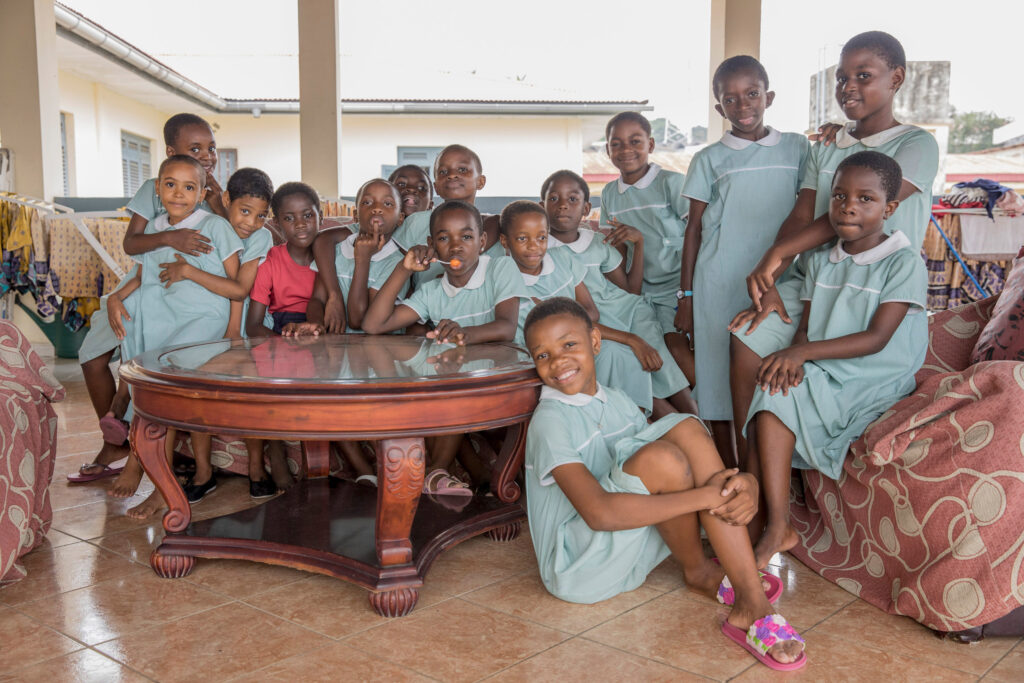
They are students at the Immaculate School in Bata (Equatorial Guinea). Here they receive a quality education in a country where the youngest children often attend school late or are taken to “nurseries” until they are 7 or 8 years old with little or no education.
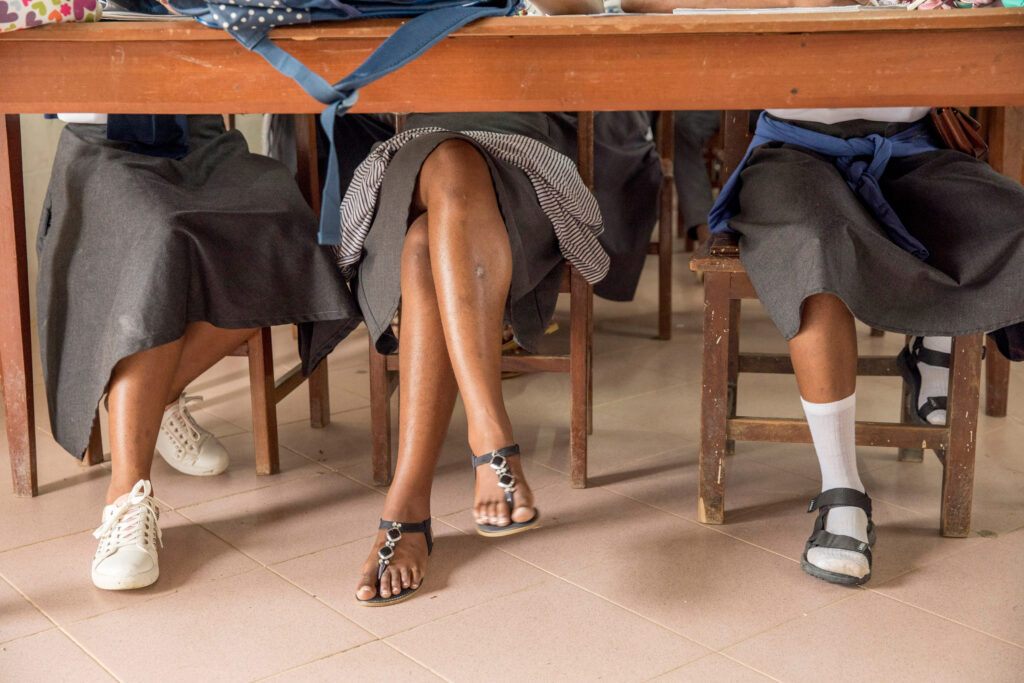
They are students at the Rafael Maria Nze Abui school in Ebibeyin (Equatorial Guinea). Here they receive a quality education in a country where the youngest children often attend school late or are taken to “nurseries” until they are 7 or 8 years old with little or no education.
The percentage of girls who start school, but will drop out in secondary school, is 33%, alarmingly higher than the 17% of boys, according to figures from the UNICEF Equatorial Guinea 2022 report.
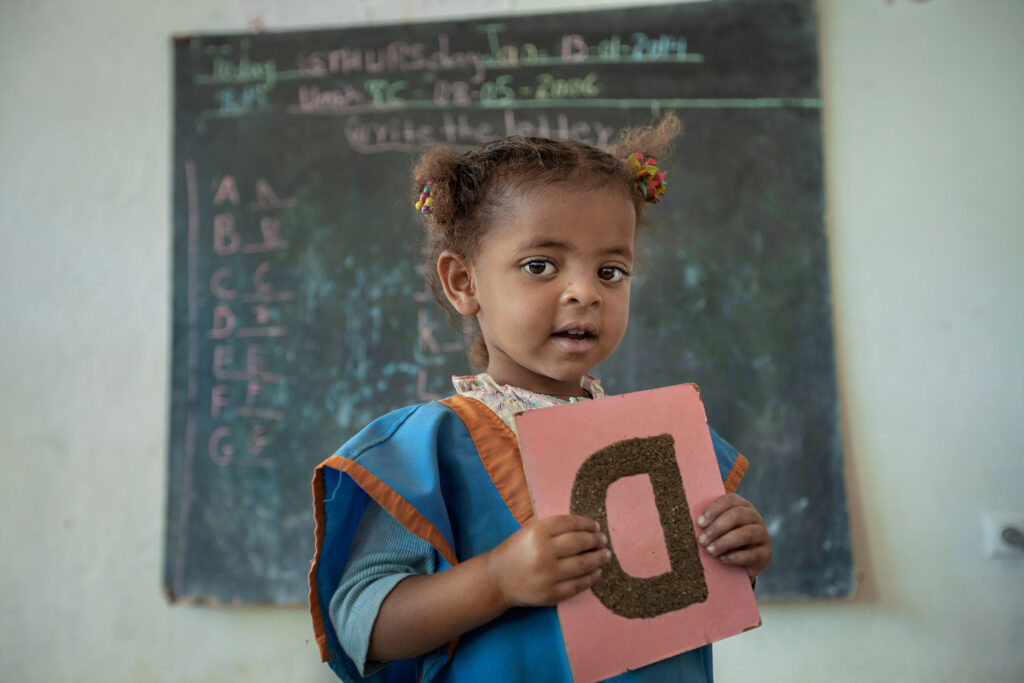
Four-year-old Sintayehu Behonegn is learning to distinguish letters at the Sara Cannizzaro Center’s kindergarten in Addis Ababa, Ethiopia. This NGO, founded in 2004, supports more than 600 underprivileged people, including 400 children. The center has a kindergarten, a school and vocational training classes where they teach sewing, embroidery and cooking workshops. In addition, they have a medical care and food program to support these people.
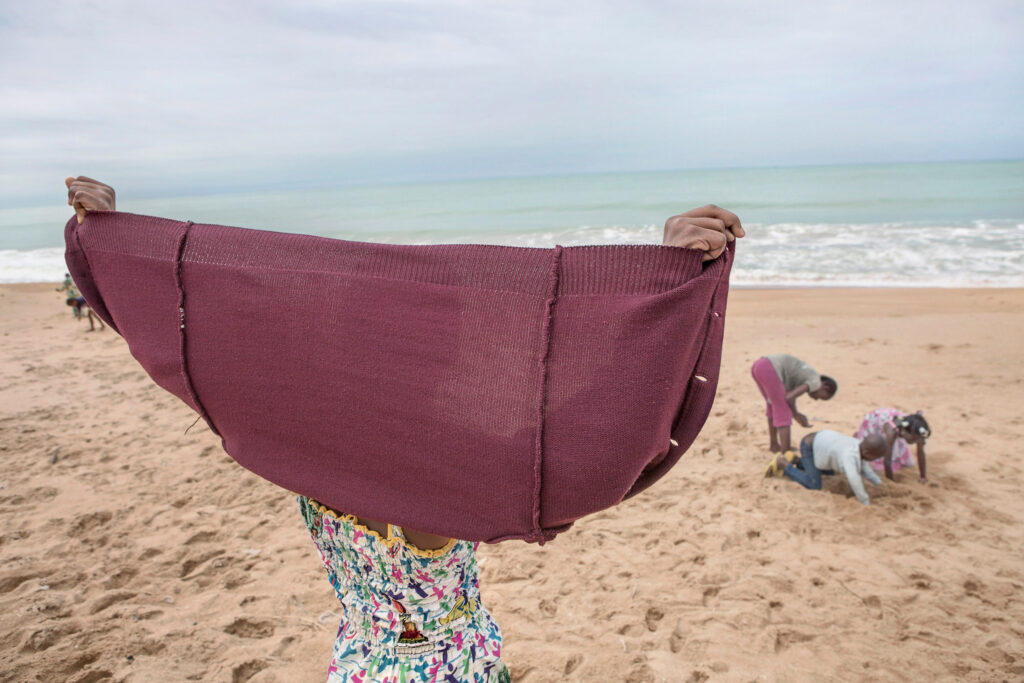
Grand Popó is a beach in Benín, very close to the border of Togo. It is a few kilometres from Ouidah, from where slave ships departed to the New World for 500 years, carrying an estimated 20 million Africans to their fate, never to return. Mensajeros de la Paz organises summer camps for children from the Centro de la Alegría Infantil, which shelters victims of trafficking, violence and abandonment. For these children, who have been trafficked and abused, having time to play is new, therapeutic, and constructive.
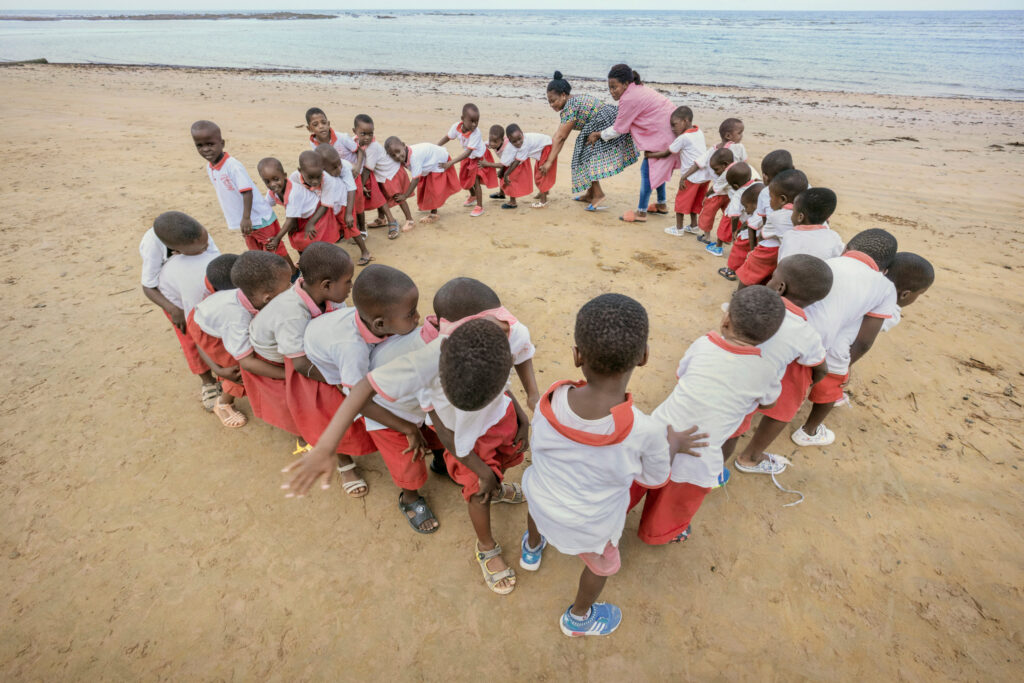
Every week, teachers Pelagia Obono and María Pilar Mbang take their students to the beach to do gymnastics, just a few meters from the school. These are the boys and girls in the second grade of the Maria Rafols School in Mbini (Equatorial Guinea), run by the Sisters of Charity of Saint Anne. Here they receive a quality education in a country where the youngest children often attend school late or are taken to “nurseries” until they are 7 or 8 years old with hardly any training.
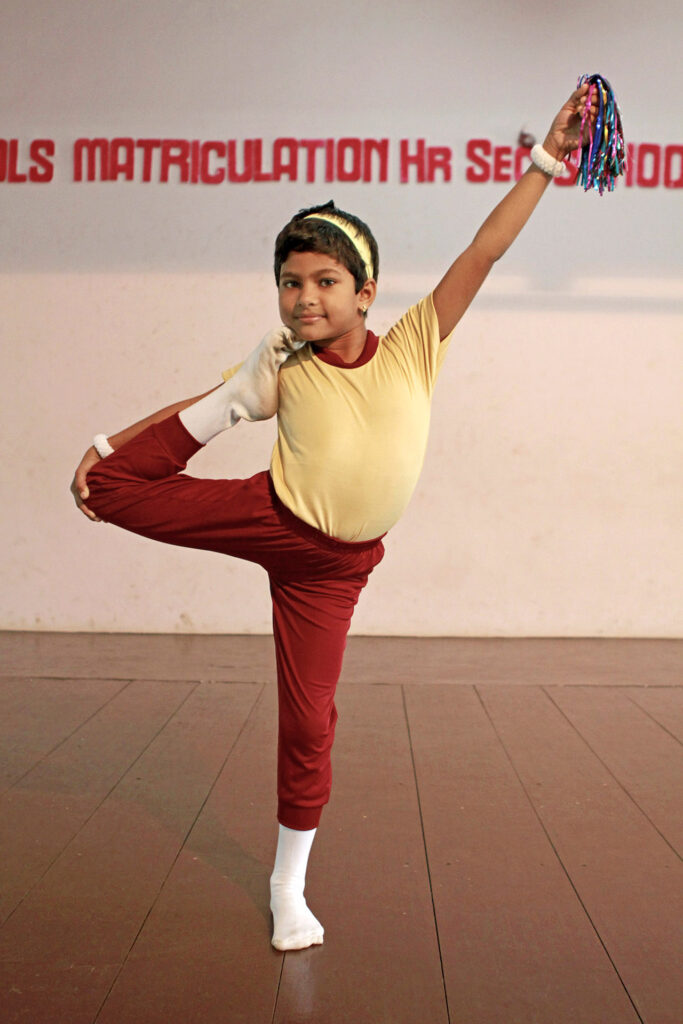
She is Jeshwel in gym class at St. Anne’s College. This school, run by the Sisters of Charity of St. Anne, opened in 1992 in Puthoor, Tamil Nadu, India. They teach yoga to children with the aim of improving their school performance, correcting their body structure, becoming more communicative and achieving a healthy lifestyle.
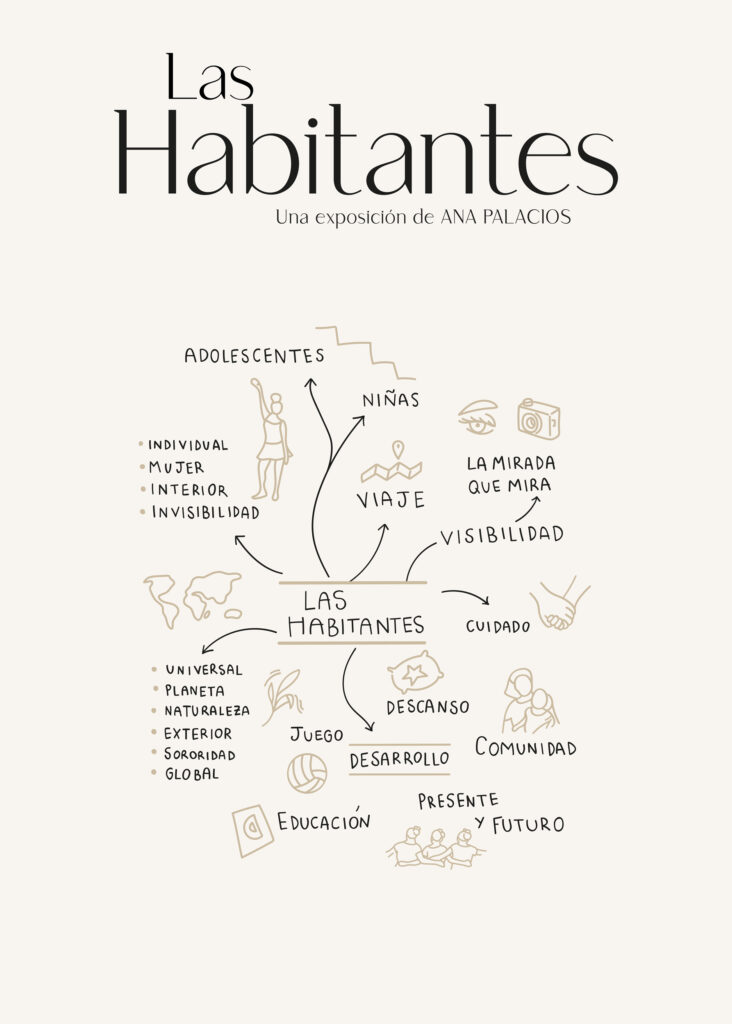
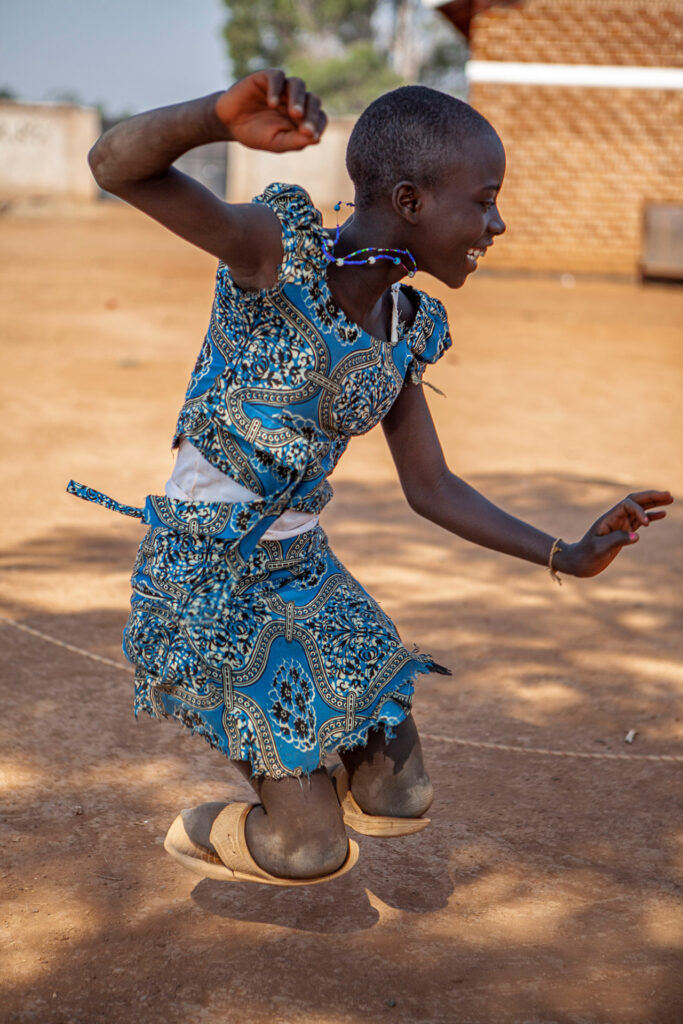
She is Asura. She has no legs from the knee down, we didn’t know if it was from birth or because of an accident or what happened, because in Kabanga Center (center for people with albinos and functional diversity in Tanzania) where I met her they didn’t know her story, only that they left her there.
“The child shall have full enjoyment of play and recreation, […] society and public authorities shall endeavor to promote the enjoyment of this right.”
Principle 7 of the Declaration of the Rights of the Child.
We recognize play for its spontaneous, voluntary, unpredictable nature and for its character of pleasure and enjoyment. Play is the main activity of children, and responds to their need to look, touch, explore and experiment. Play is vital for the harmonious growth of the body, intelligence, and affectivity.
Playing enhances the sense of humor and creativity. Games do not understand roles or gender stereotypes, it promotes development and education in equality.
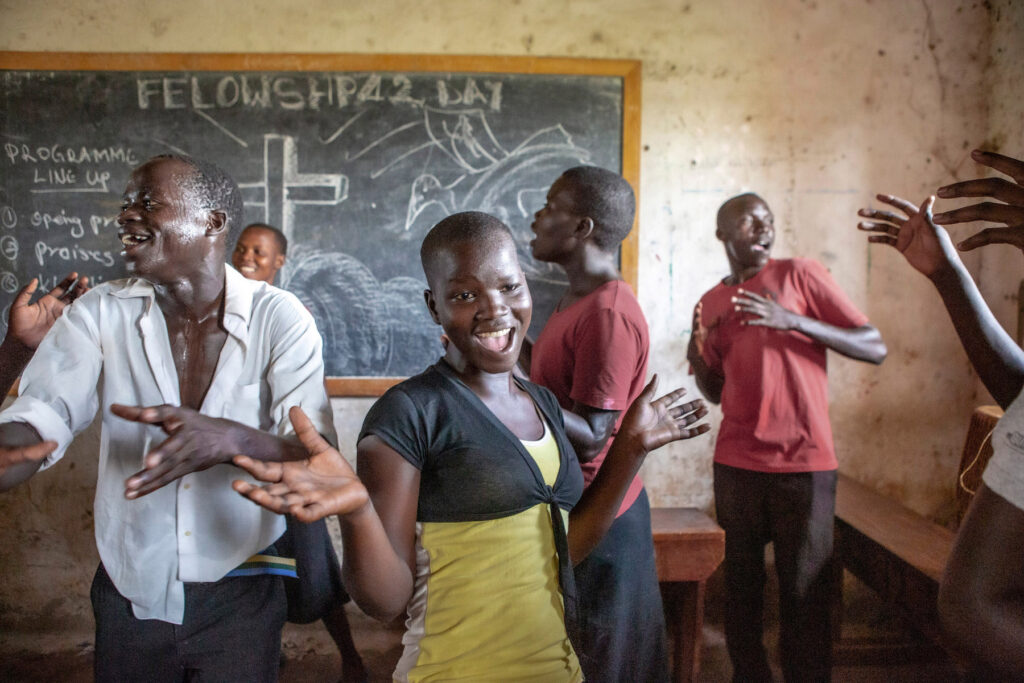
They are students at Hope North. On weekends, the classrooms become improvised places of worship where religious ceremonies are held, bringing together the entire Hope North family, passionate to the rhythm of traditional Christian songs. Hope North is a boarding school in northern Uganda created by Sam Okello, a child soldier who, 25 years later, fights so that children are not recruited for armed conflicts and who uses art as one of his tools for peace building.
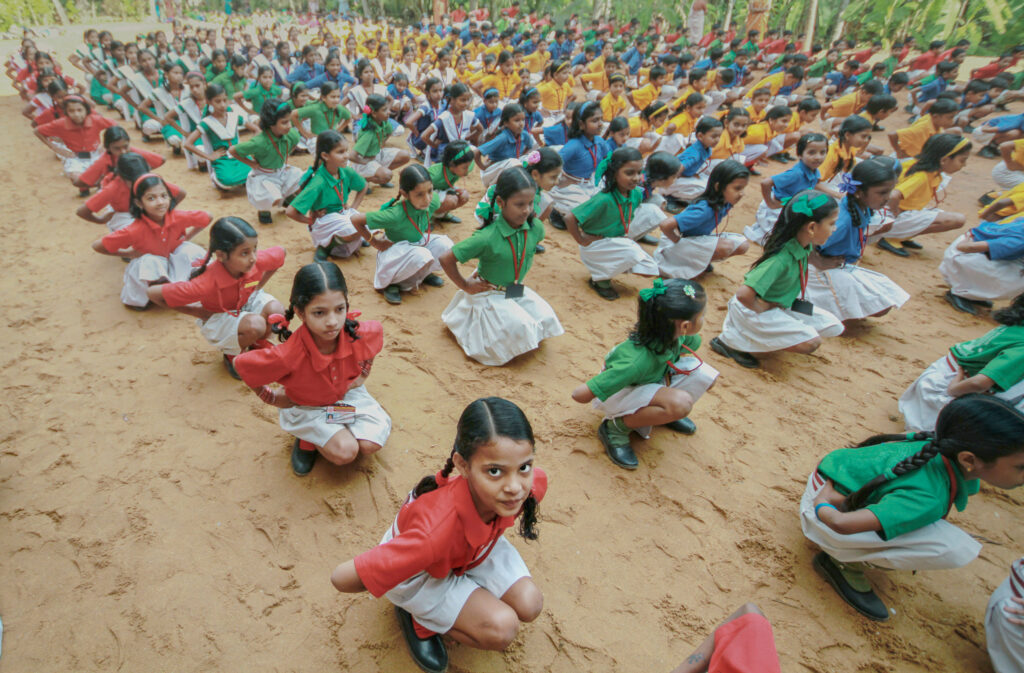
They are students of St. Anne’s School. This school, managed by the Sisters of Charity of St. Anne, was opened in 1992 in Puthoor, Tamil Nadu (India), a fishing village located on the coast of the Arabian Sea. In this school they teach yoga to boys and girls, a common practice in Indian schools, with the aim of improving their school performance, correcting their body structure, becoming more communicative and achieving a healthy lifestyle.
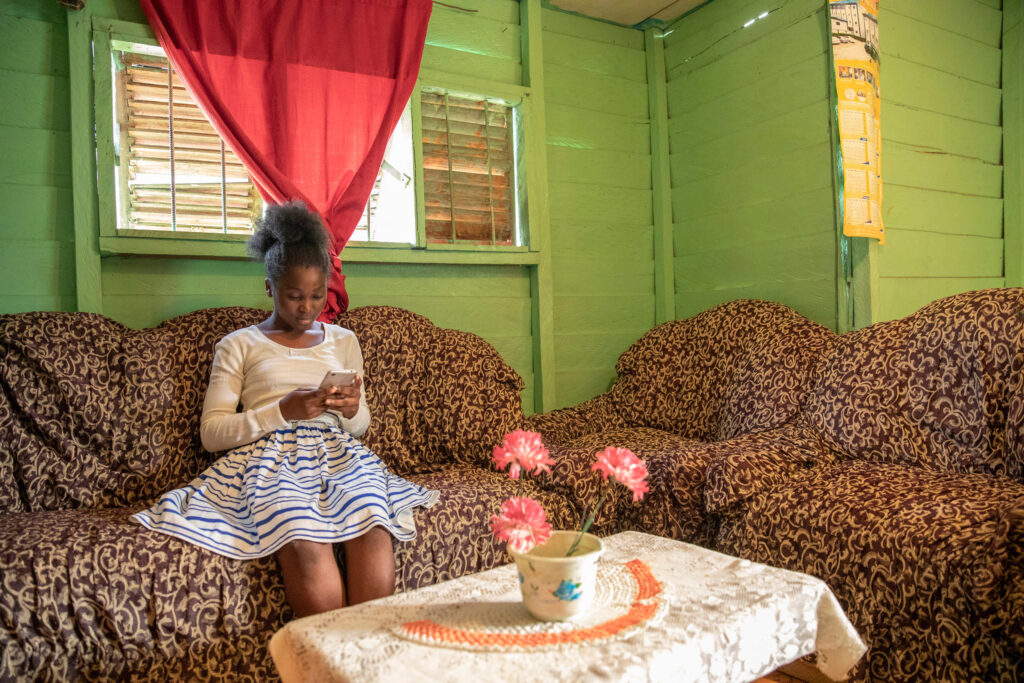
She is Casilda Esono Mbang, 16 years old, from Añisok, a small town in the west of Equatorial Guinea, bordering Gabon. She is a former student of the Vedruna school, a center run by the Carmelite Sisters of Charity Vedruna, who detected the importance of bringing digital technology to their students and developed a project of education through technology with the use of digital tablets. Casilda is now studying Electricity and Hotel Management in Bata, the country’s most important city after its capital, Malabo. She uses her smartphone mainly to communicate with her family.
“Whenever possible, children should grow up in the care and under the responsibility of their parents and, in any case, in an atmosphere of affection and of moral and material security […]”
Principle 6 of the Declaration of the Rights of the Child.
A key factor in assuming one’s own identity is to inhabit the group, recognize one’s roots, and be accompanied by the community. In the community we develop bonds, we integrate socially and we obtain the meaning of life.
Women are often the epicenter of the community, generally invisible and unrecognized. They are responsible for productive tasks, in addition to taking care of most of the care required by family members, the sick, and the elderly in the community.
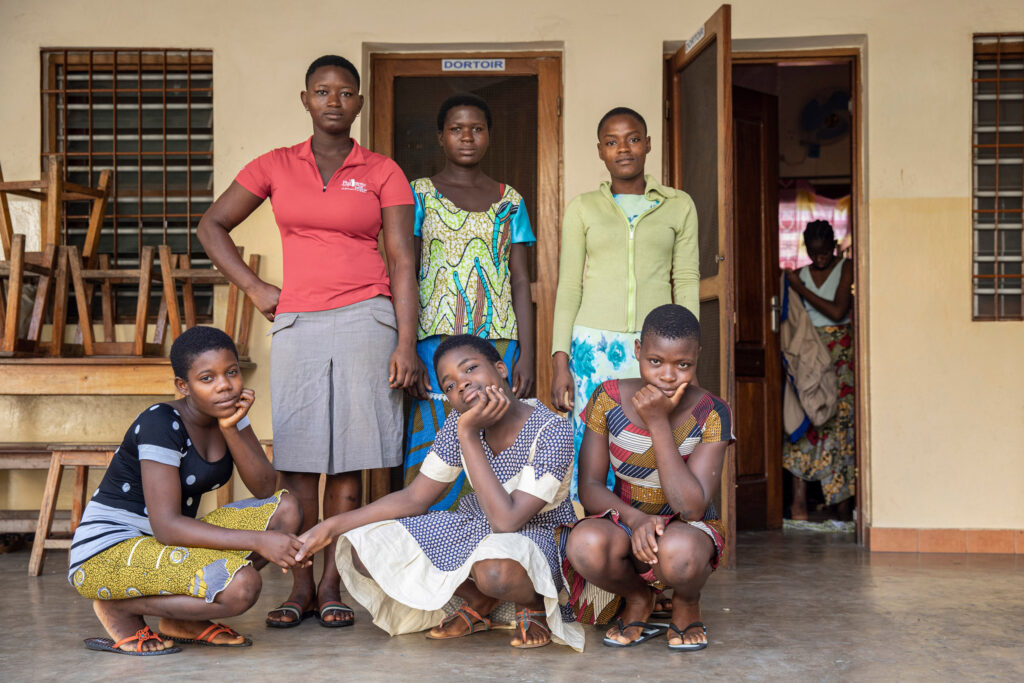
They are now living temporarily in Kekeli (Lome, Togo), a shelter for sexually abused girls. The stories of these girls are shocking. One of them is a victim of pederasty. Two of them worked as domestics in a house and the boss raped them both, another girl in this photo was raped by her school teacher and is already in the process of trial. In this center managed by the Carmelite Vedruna Sisters, they are given comprehensive medical support (to see if they have sexually transmitted diseases or pregnancy), psychological support to overcome trauma and even legal support to punish their aggressors.
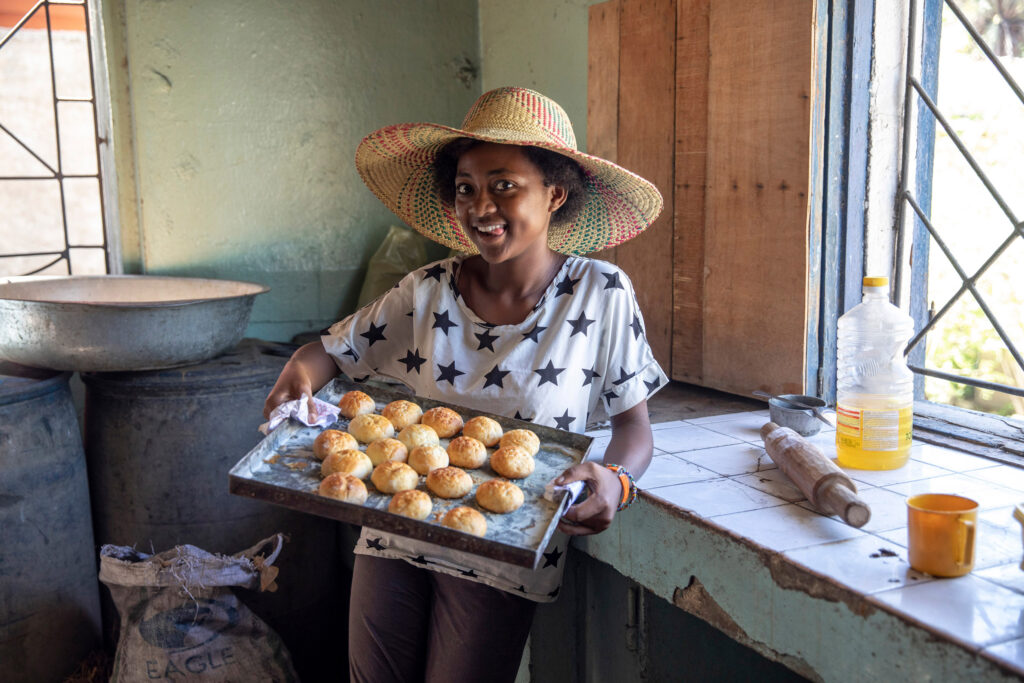
She is Princia. She is 20 years old and studies Hotel and Catering at the Don Bosco school in Tulear (Madagascar). She has just made some pastries that she proudly shows me as practice for her “dessert” classes for her classmates at the teenage girls’ residence run by the NGO Agua de Coco, which welcomes and trains between 30 and 40 girls every year. In the residence she enjoys a safe environment and this allows her to focus on her studies. Prostitution and early pregnancy are the most common dangers for these young girls at risk of exclusion.
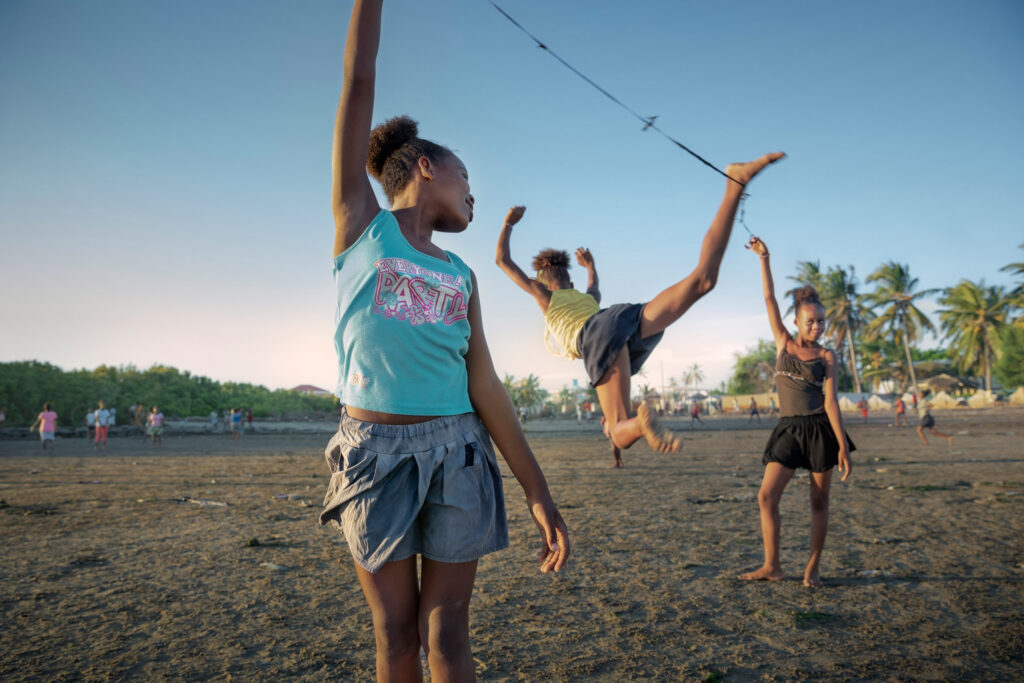
Malala, Hareko, Joseline (from left to right) play rubber band every Friday until sunset on the beach near their residence. They are educated and aware of their rights as women. The residence for adolescents in Tulear (Madagascar), run by the NGO Agua de Coco, not only offers them formal education, but also provides them with training in values such as equality and gives them the necessary tools that will enable them to empower themselves and live away from sexual exploitation, early marriage and pregnancy.
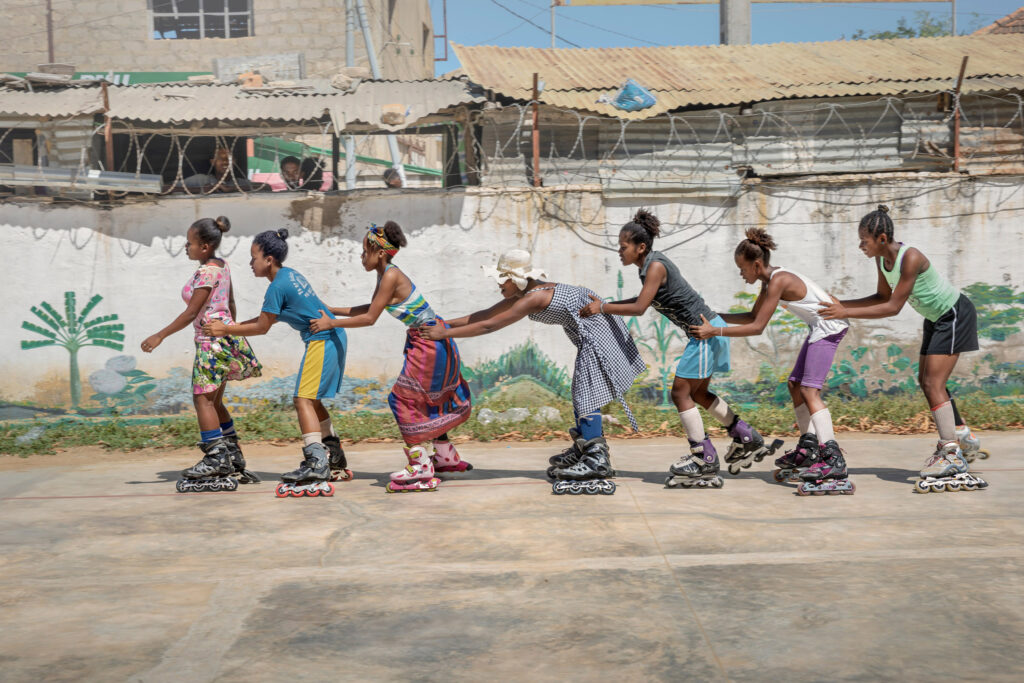
Constantine, Angela, Faraday, Dadiny, Fanampiazy, Hareko and Saholy (from left to right) skate at least once a week at the Tulear sports center run by the NGO Agua de Coco. They know that they can continue to move forward in their lives with the peace of mind of living in the residence run by the NGO, a safe place to live, and the guarantee of access to an education that will open the doors to a better future. A protection that distances them from the cultural dynamics that expose these girls at risk of exclusion to situations of sexual abuse in exchange for a few coins in order to survive.
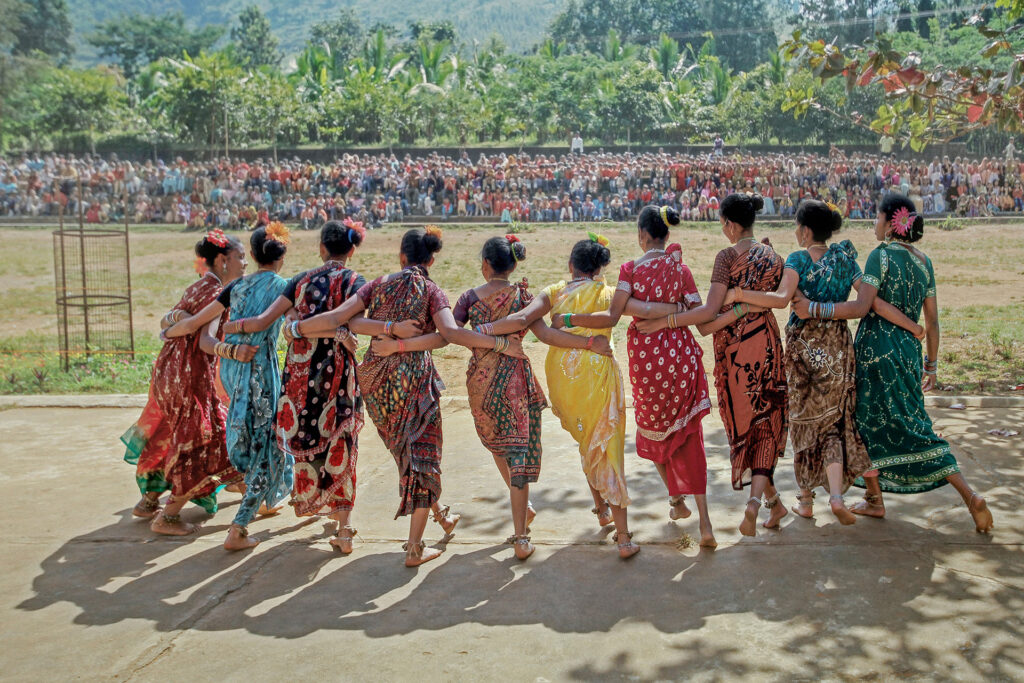
A group of young girls dance at a school festival. These students at St. Anne’s School, a school for Adivasis – original inhabitants – in Chintapalli, Andhra Pradesh (India), are from the Khond tribe, the most widespread in this part of the country. Although the women of this tribe do not enjoy the same rights as the men, they are certainly much better off than in traditional Indian society.
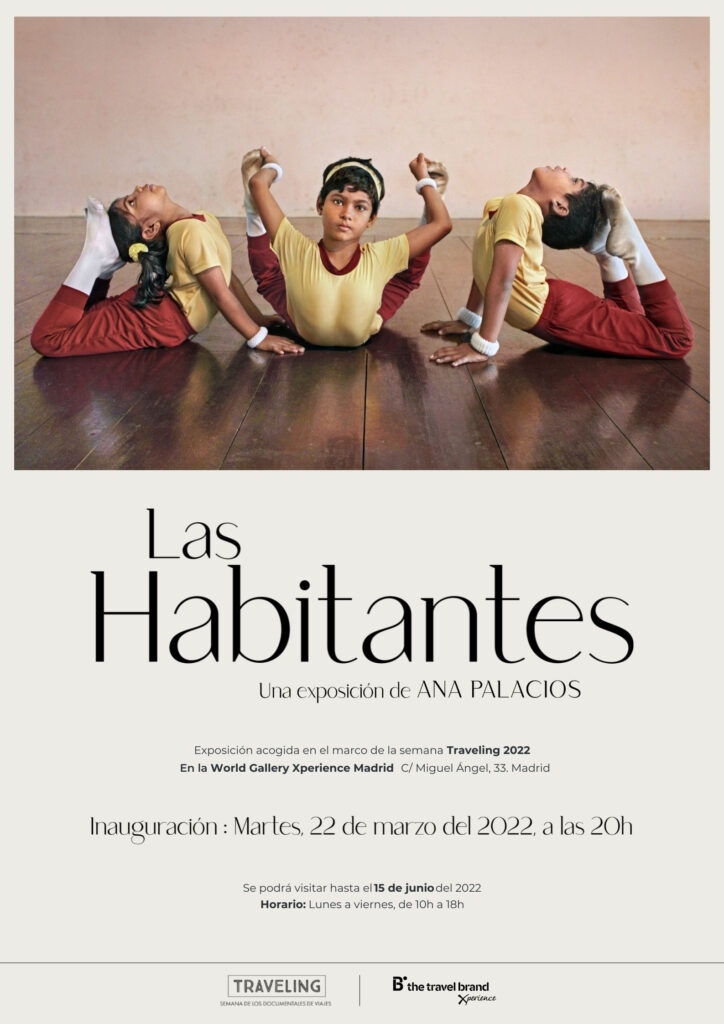
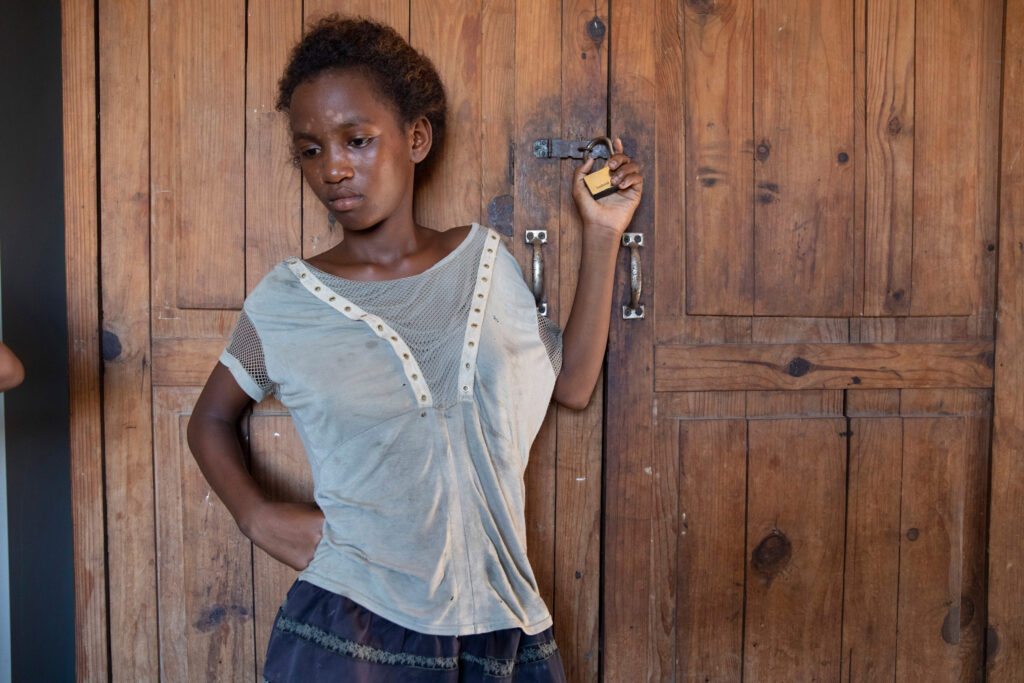
She is Houldine and she is 14 years old. She did not go to school because her mother, with thirteen other dependents and no job, could not afford more than to maintain a shack in the suburbs of Tulear (Madagascar). Among them, a sister who was engaged in prostitution and an uncle who lately sought her out to rape her. These reasons were more than enough for the NGO @ongaguadecoco to decide to welcome her in the “student residence”. This residence welcomes and trains 30 to 40 girls every year. In the residence she enjoys a safe environment and this allows her to focus on her 10th grade studies. Prostitution and early pregnancy are the most common dangers for these young girls at risk of exclusion.
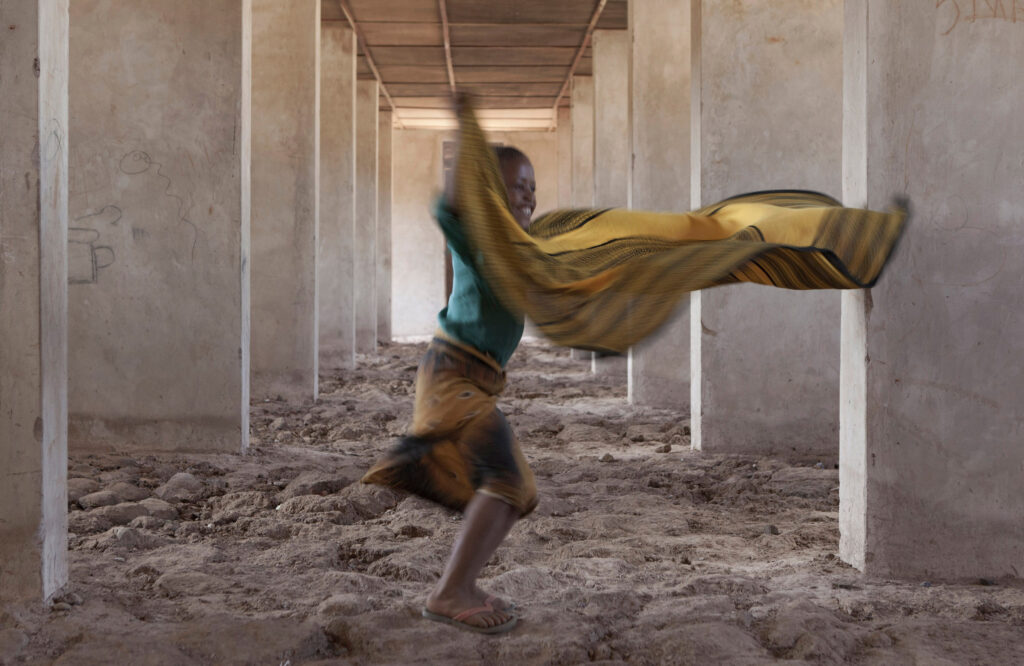
She is Hadija Bishusha. She is an albino even though she doesn’t look like one. At least that’s how she is classified in the registry of Kabanga Center, a center for people with albinos and functional diversity in Tanzania
Informativos 24h RTVE
If you have made it this far and you enjoyed it, you should know there is an exhibition available of this project.
Please, feel free to contact me@ana-palacios.com for further details.
La habitación de juegos
Galería Luis Burgos. PhotoEspaña. Madrid.
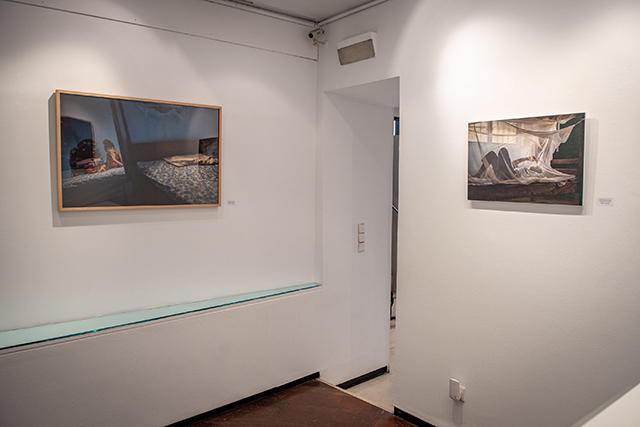
Las Habitantes. Premio Internacional de Fotografía Esperanza Pertusa
Collective exhibition. Círculo de Bellas Artes. PhotoEspaña. Madrid.
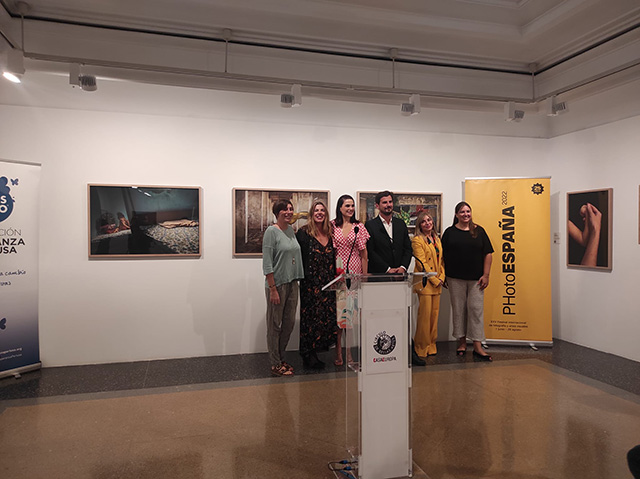
Las Habitantes. Premio Internacional de Fotografía Esperanza Pertusa
Sala de exposiciones Orden Tercera. Elche. Alicante.
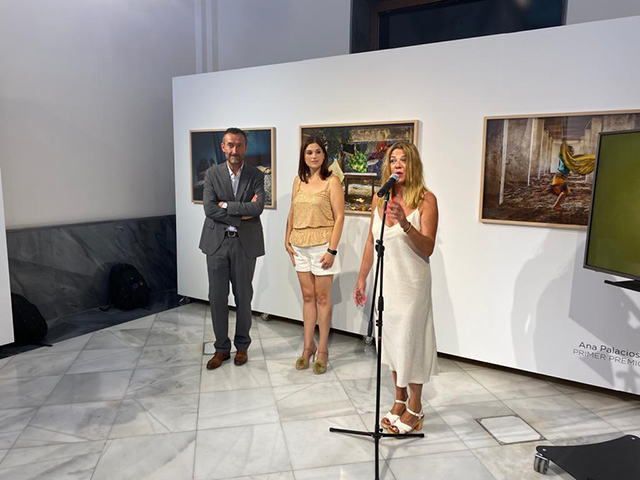
Las Habitantes
Círculo de Bellas Artes. Madrid.
Marilyn Stafford FotoReportage Award 2020
Collective Exhibition. The Nikon School. London (U.K.).